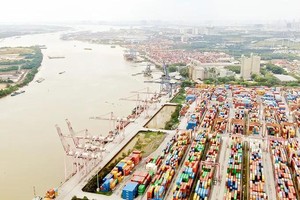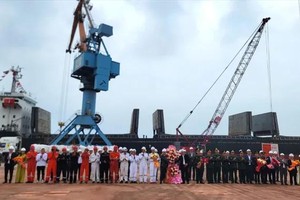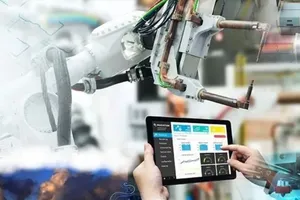This will create challenges and opportunities for the production and trade activities of Vietnamese manufacturers.
According to the mechanism, businesses have to report the amount of greenhouse gases in their imported goods, if this emission level exceeds EU standards, they have to purchase carbon credits equal to those bought by an EU company to cover the emissions embedded in their products. Vietnam is the 11th largest partner in terms of goods imported into the EU, so many industries will be significantly affected.
Meanwhile, Vietnam's emissions trading system (ETS) will officially operate by 2028. Until then, export businesses will face increased export costs and reduced competitive advantages from markets with clear carbon pricing policies.
In 2020, regulations on the organization and development of the domestic carbon credit market were introduced in the Environmental Protection Law for the first time. Since then, Vietnam has taken several steps to gradually shape the domestic carbon market.
However, operating the carbon credit market in less than 5 years poses many difficulties for Vietnam and many other countries. One of those involve pricing carbon credits, which is the basis for applying financial tools to achieve greenhouse gas emission reduction targets.
On the bright side, this is a great opportunity for Vietnam and Ho Chi Minh City in particular to transition to a green and sustainable economy. The effort to develop a sustainable and green economy is in contradiction with the short-term cost and profit challenges faced by businesses.
Without mandatory mechanisms, it is difficult to encourage businesses to change. Clearly, the formation of a carbon credit trading market, backed by green credit, is a great opportunity to create a real transformation.
Another positive aspect is that Vietnam can take advantage of support from international financial institutions and the transformation of foreign investors.
In January, the LEGO Group, the world's leading toy manufacturer, built its first carbon-neutral factory in Vietnam. In early August, the UK government announced the second phase of the Climate Finance Accelerator in Vietnam after the success of the first phase.
It can be seen that building a carbon credit market and green finance is not only an irreversible trend but has already begun to take shape. If green credit can provide favorable interest rates for environmentally friendly projects certified with carbon credits, then carbon credits are the "visa" to export goods to other countries.
























